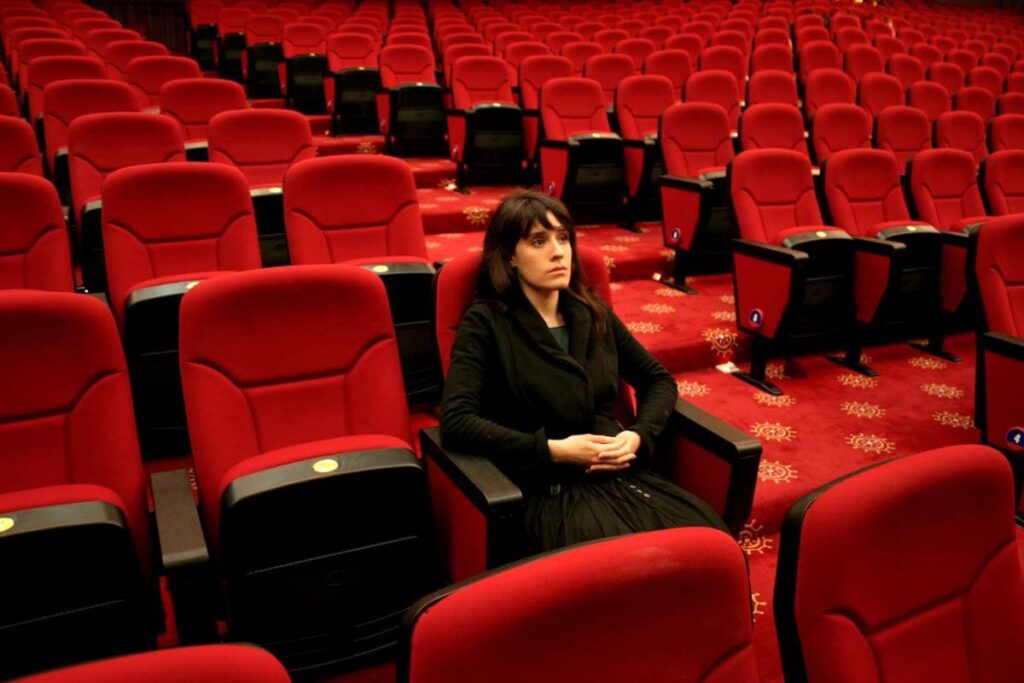Film is one of the most widespread and influential forms of media on the planet, but what about film critics? Are they still relevant, and if so, what do they contribute to society?
Film critics are still relevant today. They offer invaluable insight into how filmmakers can improve, but at a higher level, they provide vital insight into the creative and media industry and the direction that it’s moving towards.
Below will be a discussion of the role of a film critic in today’s society and why they will continue to be not only relevant but essential.

What Is a Film Critic?
A film critic watches movies and evaluates them based on their quality and cultural merit. Their criticisms act as records of cultural norms and industry standards of the time and play a key role in influencing the future of film as a whole through their commentary.
Many universities and colleges offer film studies courses, but not all film critics complete a degree in their field. Some study psychology, English literature, and journalism, while others don’t study at all.
Critics don’t need degrees, but they do need in-depth knowledge of film and film criticism.
The New York Film Academy details precisely what a film critic needs to take note of and evaluate to build the framework of a solid film review.
Amateur vs. Expert: What Tells Them Apart
Every other person can access the internet and make their thoughts and opinions known, which means that anyone can write a review on what they thought of a film and give a recommendation at the end.
The caveat is that few people can provide thorough, expert evaluations of a film and why it works or doesn’t. After all, a recommendation is only a fraction of a critic’s job.
An expert film critic will analyze the technical aspects of a film, from the acting to the sound design. From there, they’ll discuss large mainstream cinema and shed light on small films practically invisible to the majority of the public.
A critic should pick apart and evaluate these things, but they should also weigh in and provide new and unique levels of insight onto:
- The film.
- The actors and their body of work.
- The director and their career.
- What the film means for the whole of cinema.
By unveiling these minute details that the untrained eye would easily miss, film critics can literally shape the future of film and what is considered art. They can take that unknown filmmaker and launch them into the spotlight, and they can topple blockbuster giants.
The most crucial part of a film critic’s job is to lead the audience to the film’s artistic elements and show them how to appreciate them in a way only they know how.
Why Are Film Critics Important?
Roger Ebert once said that film criticism is important because films are important. The film critic emerged as an entity in the 1800s, but it wasn’t until the 1900s that film criticism became a regular feature of the newspaper.

Today, we study not only films dating back to the 19th century but also film criticisms from before most of the films we know today were even conceptualized.
Today, film critics are everywhere, and their role in the literary and media industry is growing in size and value. A distinction between the average reviewer and the expert critic forms the crux of the argument that criticism is essential.
Keeping a Cultural Record
Film critics write reviews based on things we practice and believe right now. What about 100 years from now? What about 100 years in the past? Centuries of culture and history have been preserved thanks to film critics. A review contains a commentary on a film and the milieu it was written in.
This holds within it ideas about:
- Keystone social and political issues.
- What gender norms were like.
- What new inventions had just come into existence.
- How citizens feel about propaganda.
- Art, music, and literature of the time.
It also documents the shifts that occurred in the film industry. Through these records, we can see:
- What cameras and cinematography techniques filmmakers use.
- How sound effects were produced.
- What lighting technology was prevalent.
- How special effects were evolving, and what methods they incorporated.
Film critics help us to look back and chart this growth.
Combatting Confirmation Bias
Film critics’ work has value beyond educating people on the nuances of movies. Some think that critics are biased and overemphasize the idea of criticism as something negative, assuming critics primarily point out the faults of a movie.
However, the word “criticism” here means discussion and critical analysis, not negative feedback or insult. However, critics’ negative feedback is just as valuable as the positives they praise.
Challenging the way something is allows it to grow.
Confirmation bias is when people seek out or interpret something that supports their beliefs and reject or ignore anything that offers alternative viewpoints. Film critics actively combat confirmation bias by providing a range of opinions through an objective lens.
Here’s a video that explains the concept further:
Film critics neither pander to the opinions of the masses nor do they reject any mainstream belief just to be contrary. They offer an objective evaluation of what they see, good and bad.
Let’s say a new Marvel film (or any blockbuster) has just been released, and the general consensus is that it’s the best movie of all time. Is that because Marvel fans just decided that? If the vast majority of audience members agree with the judgment, that becomes the mainstream opinion.
Film critics then may point out that, although the film has its highlights, there might be some less impressive elements involved in the filmmaking, aspects that casual watchers may not have noticed (sometimes the popular consensus is right of course!).
By pointing out these flaws and offering room for improvement, the critic has shattered the audience’s confirmation bias by offering an alternate perspective in a way that nobody can dispute and allowing the audience to look beyond face value and appreciate nuance.
The Future of the Film Critic
Echoing Roger Ebert’s comment, as long as films are around, film critics will be right there with them. Movies are more straightforward to produce and accessible than ever before and grow more so by the year, so it only makes sense that film critics will steadily grow with the film industry.
That said, there is the ever-growing presence of amateur critics that provide surface-level criticism, and it’s becoming harder for audiences to tell a thorough and expert review over a mediocre one.
Regardless, every opinion and criticism has its place in the digital age, and with growing access to the digital space, these opinions show no sign of slowing down.
Final Thoughts
Film critics aren’t all hounding actors for the tabloids, and in fact, those critics are only a percentage of the career population.
Film critics make observations and judgments that are exceptional in growing the film industry and preserving human culture and history, as well as confronting and questioning the norms and beliefs of the present.

